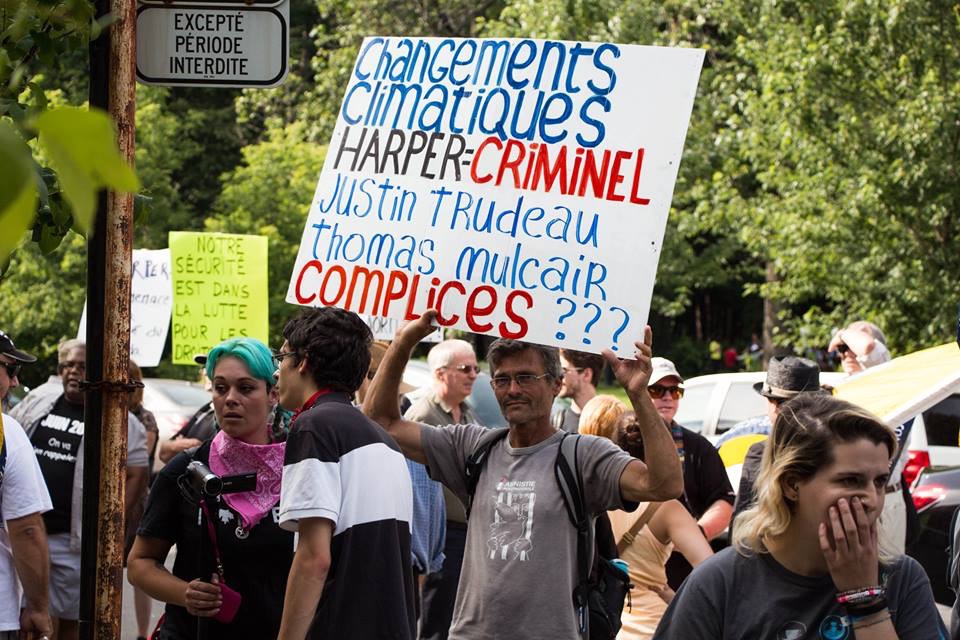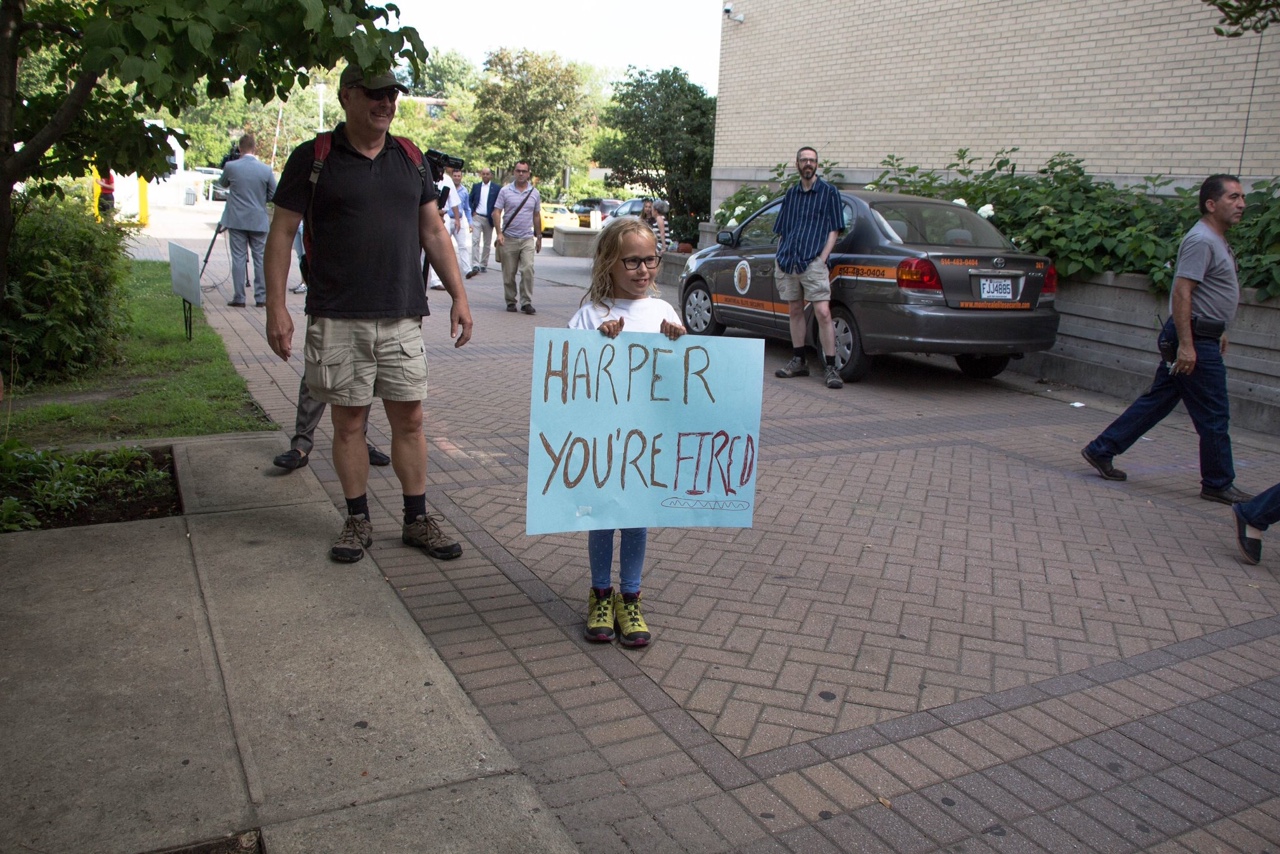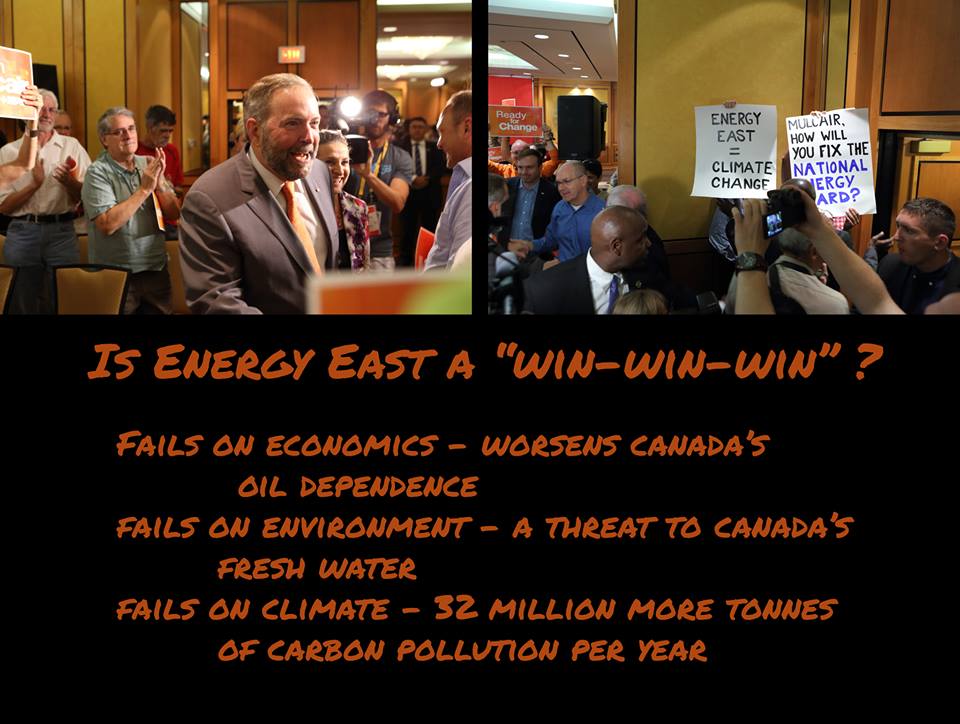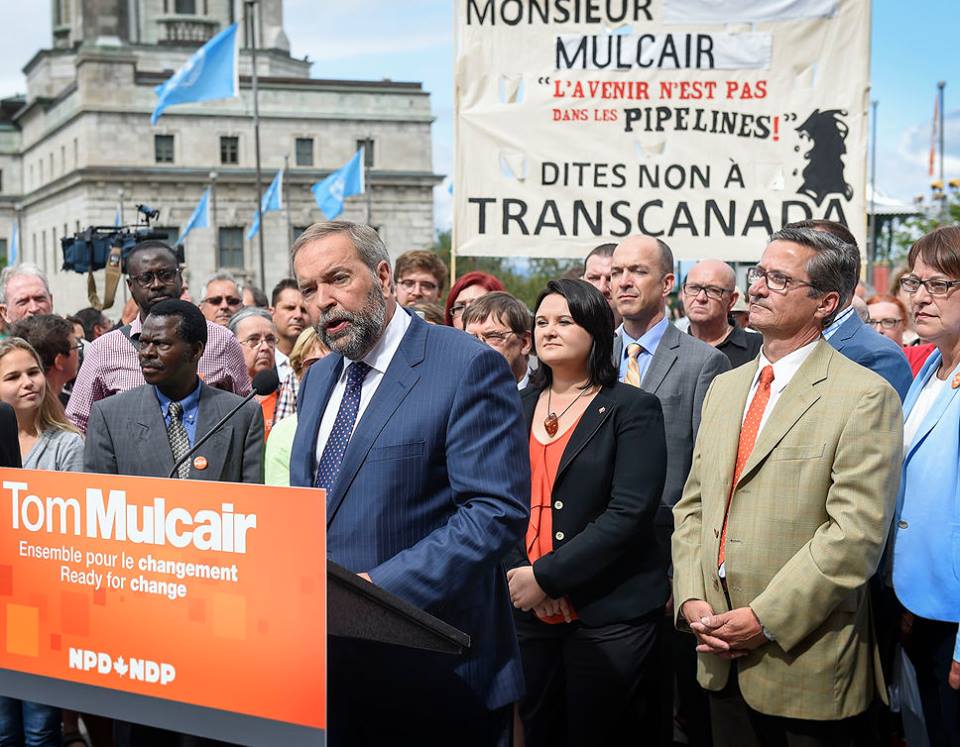WEEK 1: The federal election gets called early and the pressure begins.
When Stephen Harper called the elections on August 2nd, effectively making this year’s electoral period the longest of the last decades, people all across the country concerned about climate change geared into action to make sure the climate movement would have a voice throughout the 11-week campaign.
And what’s better than hitting up the campaign trail events where politicians and to-be-prime ministers gather crowds and media in communities all over the country?
To kick things off on August 2nd, Harper was greeted by a diverse crowd in Montreal who rallied outside at his elections launch event to call him out on his abysmal record and on his climate-wrecking policy.


A few days later on August 6th, the first national leaders debate took place and tar sands pipelines were a central debated issue. But still, no leader across party lines provided an ambitious plan to tackle the climate crisis and to catalyze the transition to a renewable and just economy.
So the next morning, on August 7th, members of Toronto350 showed up at an NDP campaign event with signs, to remind Mulcair of what he had said the day before about the Energy East tar sands pipeline.

Then, the same day, Linda McQuaig, the NDP’s high profile candidate in Toronto, caused a stir when she stated the obvious and said on TV that “a lot of the oil sands oil may have to stay in the ground if we are going to meet our climate change targets.”
McQuaig’s comments before the weekend — that some dubbed “controversial” — set the stage for a whole lot more action on Week 2 of the campaign as the bird-dogging actions intensified and media coverage of these issues exploded. Scroll down to keep reading!
There is something bubbling up – and we are still the middle of summer while tons of people are on vacations. Click here to organize actions like these and get involved in mobilizations this summer and fall.
WEEK 2: Mulcair gets asked about the Energy East pipeline, and then the whole country talks about the tar sands all week.
We had our share of headlines about the tar sands this week in Canada. It started with a bang last Monday on August 10th when Thomas Mulcair was interrupted by members of Toronto350 who stood up to ask him about Energy East, again, at the book launch of his autobiography. When asked if he would commit to rejecting the pipeline, Mulcair said he would if it was found to be incompatible with action on climate change, noting that he supports an overhaul of Canada’s regulatory process to introduce a climate review of tar sands infrastructure.
The action was widely covered in the media, giving momentum to a week of conversations about the tar sands.
https://www.youtube.com/watch?v=MV5pn8ky-Sw&feature=youtu.be
Giving him no rest, concerned citizens were also present at the Montreal book launch event that same evening. While they were unable to ask Mulcair questions, they talked to the press and engaged discussions with attendees who were eager to talk about the subject.
Then, on Thursday August 13th, Mulcair had to deliver his speech in front a crowd of 300 outside the chateau Frontenac in Quebec City with a clear visual reminder that people in Quebec want him to reject the Energy East pipeline. Responding to the action, Mulcair said he would “start the process again from the beginning” for Energy East.

Photo credit: Simon Clark. Members of Stop Oléoduc were at the rally with a banner that said: “Mr Mulcair, there is no future in pipelines. Say no to TransCanada.”
This action, making headlines again, gave even more impetus for the media to keep asking the NDP and other federal leaders about their position on pipelines and tar sands expansion.
As the week continued, the whirlwind of commentary and conversations on the topic kept growing. Scientists weighted in to remind everyone that keeping tar sands in the ground in order to meet climate targets was only “a matter of fact,” and columnist chimed in — even the ones you wouldn’t expect to say such things — explaining that “there is no way we can cut greenhouse gas emissions while also building more pipelines and exporting more oil.”
As the second week of the federal elections campaign drew to a close, social media was still bustling with conversations about the expansion of the tar sands. Despite all this, the NDP and the other federal leaders keep a position that says you can expand the tar sands in Canada and tackle climate change — a position that is still not in line with the science and borders climate change denial.
All the more reason to keep going, and it bodes well for Week 3!
Click here to get involved in a wave of mobilization by the climate movement this fall, and download the bird-dogging toolkit to organize similar actions targeting party leaders across party lines during the elections campaign.